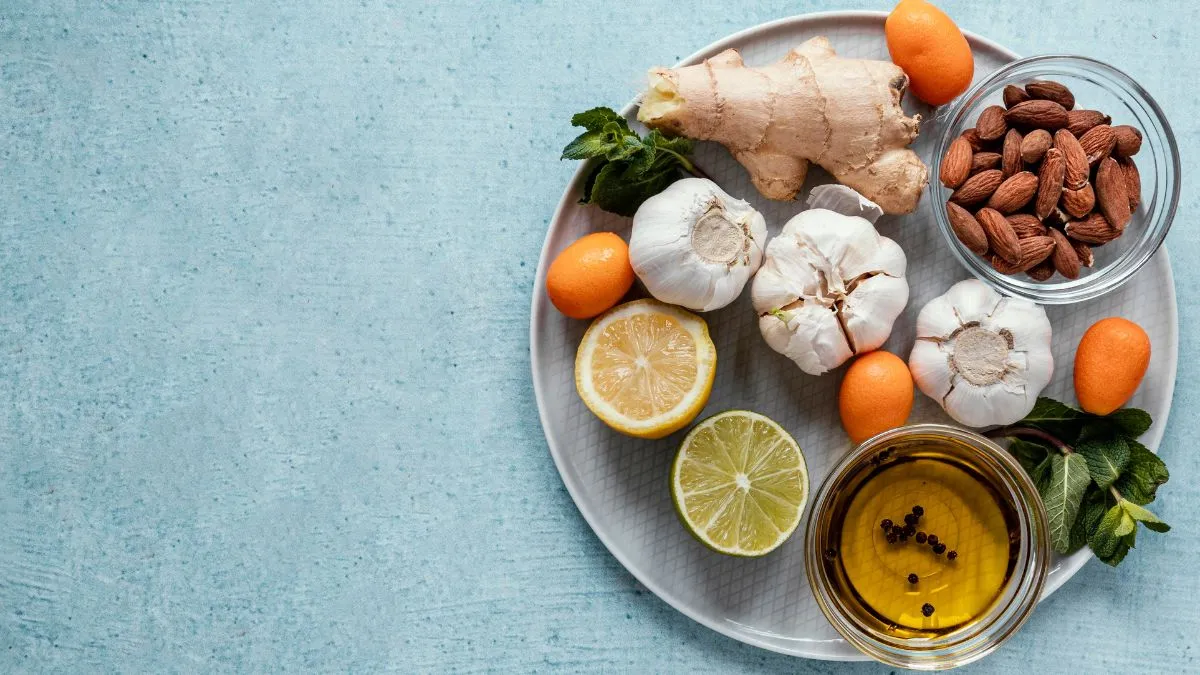
Pain and inflammation have been the major concerns in almost all disease pathologies, especially in Rheumatology – joint-related diseases. There are a few common bone and joint diseases like Rheumatoid Arthritis, Ankylosing Spondylosis, Gout, etc, which are showing these natures of the pain and inflammation together. Ayurveda gives more importance to the manifestation of Jwara (fever) or Sopha (swelling) in all the pathologies, which are also inflammatory in nature. Ayurveda considers inflammation to be due to Pitta Dosha. Pitta means fire and it is primarily responsible for our digestion, metabolism and hormones.
Table of Content:-
“All the pathology in Ayurveda starts from the stomach, where the digestive fire (Agni) is placed. If the Agni is in normalcy, almost all the functioning of the body is in a balanced state. When it becomes abnormal, the digestion gets vulnerable, which leads to the formation of Ama (toxins / free radicals). This Ama goes into circulation and gets blocked in various places, which leads to the blockage where the disease manifestation starts,” shares Dr Ragavendran, Clinical Head & Physician - Musculoskeletal Speciality Clinic, AVP Research Foundation.
- Joints are the site of Vata Dosha and when the Vata becomes vitiated, it affects the joints also.
- Joints are lubricated by Kapha dosha, which has an unctuous nature.
- So when we speak about Joint pains, it involves both Vata and Pitta Dosha, which are aggravated, causing the pain and inflammation.
Also Read: Essential Oils Can Reduce Inflammation Too! Here Are 6 Oils To The Rescue
Anti-Inflammatory Foods That are Easily Available
Maintaining strong joints requires strong digestive fire as well as incorporating a nourishing diet. Nowadays, supplements have become part of every prescription, but unless and until we have good digestion and absorption, its’ of no use. Let us explore some of the foods that can help in reducing the joint pain by its anti-inflammatory properties.
Turmeric
“It is one of the powerful spices possessing antioxidants and anti-inflammatory properties, which is commonly used in almost all food preparations. It contains curcumin, which has anti-inflammatory properties. Golden milk is worldwide famous for its anti-inflammatory and anti-oxidant properties, which boost immunity,” shares Dr Ragavendran.
Ginger
Ginger has gingerol and shogaol compounds that possess rich antioxidant and anti-inflammatory properties. Consuming ginger regularly helps in reducing inflammation by neutralising free radicals.
Also Read: How Does Ginger Help in Relieving Heartburn And Gassy Stomach
Garlic
The anti-inflammatory properties of garlic can help reduce inflammation in the body. This is attributed to its bioactive compounds, particularly organosulfur compounds like allicin. Studies suggest garlic can reduce inflammatory markers and potentially protect against diseases linked to chronic inflammation.
Black pepper
As per Dr Ragavendran, “Black pepper has anti-inflammatory properties, largely due to the presence of piperine. Piperine can help reduce inflammation in the body, potentially easing joint pain and muscle soreness. It also has anti-oxidant properties, which can help improve joint health.”
Pirandai (Cissus quadrangularis)
Commonly used in Tamil Nadu as home remedies, this is a rich source of Vitamin C and has anti-inflammatory and anti-oxidant properties. It is widely used for various kinds of joint pains and inflammation.
Mudakkathan (Cardiospermum halicacabum)
This has a chemical composition including steroids (like beta-sitosterol), saponins, flavonoids, and alkaloids, which can contribute to its anti-inflammatory and antioxidant properties, making it effective for joint pains and arthritis. It is also rich in Vitamin A and C, Calcium and Iron. The leaves are commonly used for food preparations when people suffer with joint pains which gives a good relief.
Also Read: Is Rain Making Your Joints Ache? Doctor-Backed Remedies for Relief
Herbal Remedies for Joint Pain Relief
Eranda (Ricinus communis) exhibits anti-inflammatory properties, primarily due to its rich content of bioactive polyphenols and flavonoids. The roots, leaves, and even the oil of the plant have shown anti-inflammatory activity in both traditional and scientific studies, providing potential therapeutic alternatives for inflammatory disorders. Castor oil is widely used for various purposes, and which is also found to be effective in regulating Vata, which in turn manages the joint pains.
Rasna (Alpinia galanga) possesses anti-inflammatory, analgesic, anti-toxic, and antioxidant properties, used traditionally to treat joint and muscle pain, respiratory issues, and skin conditions like eczema.
“It contains bioactive compounds like flavonoids and terpenes. In Ayurveda, there are a lot of Kashaya combinations containing Rasna as one of the main ingredients is clinically found to be very effective in managing joint pains,” shares Dr Ragavendran.
Guggulu (Commiphora mukul) is a very potent anti-inflammatory herb widely used in Ayurveda in different medicine preparations. It helps in relieving the pain and strengthens the muscles, bones, joints and ligaments. It is also widely used in fracture and dislocation conditions. Ayurveda medicines like Rasna Guggulu are very commonly prescribed for joint pains and inflammations.
Boswellia is widely used to manage inflammation associated with conditions like osteoarthritis, rheumatoid arthritis etc. It is often taken as a supplement to support joint health and mobility, potentially reducing pain and stiffness. It is also widely prescribed in Ayurveda practice for the management of joint pains.
Always remember to consult with a healthcare professional before starting any herbal remedies to ensure they are suitable for you.
Also watch this video
How we keep this article up to date:
We work with experts and keep a close eye on the latest in health and wellness. Whenever there is a new research or helpful information, we update our articles with accurate and useful advice.
Current Version
